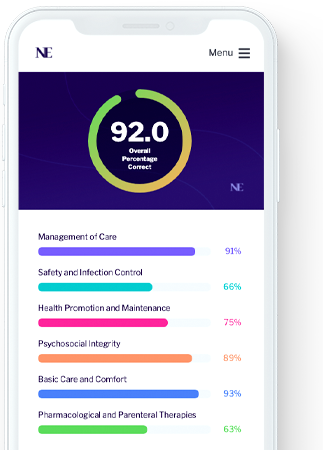Nurses on the Frontlines: Combating the Opioid Epidemic Through Patient Care
In March 2023, the Food and Drug Administration (FDA) approved Narcan – a medication used to treat opioid overdose – for over-the-counter sale. The fact that the United States felt the need to make this kind of medication readily available to the public speaks volumes about how severe the opioid epidemic has become.
What Opioid Epidemic?
Almost 102,000 people died from opioid overdose between November 2021 to October 2022, according to the FDA. The Centers for Disease Control (CDC) reports narcotic overdose deaths were five times higher in 2020 than they were in 1999: a 400 percent increase.
In September 2022, the U.S. Congress Joint Economic Committee reported the opioid epidemic cost the U.S. government almost $1.5 trillion. The high cost comes from medical care, lost workforce, lower spending, and reduced quality of life.
Nursing Role in the Opioid Crisis
As a nurse, you have a role in managing this crisis. Whichever setting you work in, you will likely come across a patient coping with opioid addiction.
Treat Patients’ Pain
You read that right. Pain needs to be treated, and sometimes that includes opioids. Caught early, pain takes less medication to control. Advocate for your patients in acute pain, and you can help them keep it from becoming chronic pain and lower their risk for opioid addiction and abuse.
Learn Drug-Seeking Behaviors
You have been taught that a patient’s pain is whatever they say it is. And that is 100 percent true. Learning drug-seeking behaviors is not an exact science, so it’s essential to work with your physicians, social workers, and mental health providers to reach a consensus and make a plan if you feel a patient is lying about their pain. Remember: if you withhold opioids from an addict, you are advocating for them.
Educate Your Patients
Educate all your patients on the risks of opioids, and offer other options to manage pain. Many hospitals have pain management teams – use that resource! If your patient is resistant to trying non-opioid medications, collaborate with other teams in your facility.
Nurses Can Prevent Opioid Misuse in the Community
No matter where you work, you can help to prevent narcotic abuse in the community.
Facility Nurses: Discharge Meds
If you work in a facility, you are often the last person a patient sees before they walk or roll out the doors. When you compile their discharge orders and papers, be sure to check their opioid prescription to make sure the dose and pill count look appropriate.
School Nurses: Be on the Lookout
As a school nurse, you have a unique view into the lives of teenagers. If you suspect a student is currently on a drug, experiencing withdrawal symptoms, or displaying signs of opioid overdose, you have the capacity and responsibility to educate, report, and treat.
Home Care Nurses: Do Inventory
When you visit a patient at home, always remember to count their prescribed narcotics. Many families share medications either willingly or reluctantly, and a simple pill count will often give you clues if someone else is taking them. Watch for signs of uncontrolled pain in your patient, which could also mean their pain meds are not available to them.
All Nurses: Report Abuse
Every nurse in every setting has a legal and moral obligation to report suspected abuse. Trust your gut. If a family member appears to be high, and they are your patient’s ride home, let your team know.
If a child comes into your office at school or in a primary care setting and you notice bruising, call the Department of Family Services for your state or the Childhelp National Child Abuse Hotline. If your elderly patient has gone through their pain pills twice as fast as they should have, let their provider know and make a plan together to address it.
Opioid abuse can hit nurses, too. If you are coping with addiction, here are some resources you can tap into:
As a nurse, you can make a positive impact on this crisis. Learn all you can about symptoms, educate your patients, and be ready to act if you notice opioid abuse in your practice or in the community.




